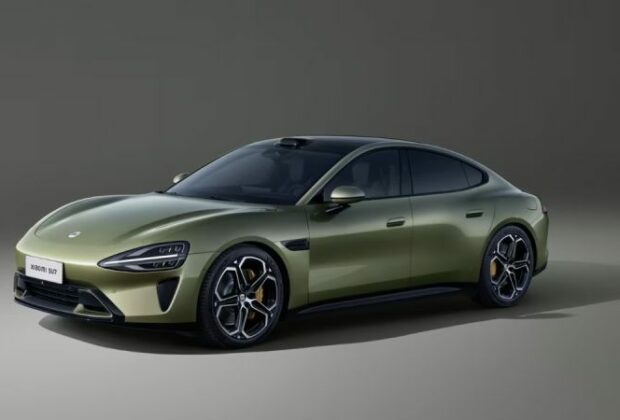The first electric car from Xiaomi was unveiled a few days after another one from Huawei, indicating that the Chinese tech titans’ efforts to get into the electric vehicle race are starting to pay off.
On Thursday, two days after Huawei debuted its Aito M9 SUV, Xiaomi introduced the SU7 car. The two businesses have established themselves as producers of cellphones and other consumer electronics, but they have recently made clear that they have high hopes for the automotive industry.
Xiaomi declared in 2021 that it would put $10 billion into a smart EV-focused subsidiary over the course of the following ten years.
CEO Lei Jun stated during the launch event on Thursday that the firm was starting a “new decade” and that, during the next 15 to 20 years, it intended to rank among the top five automakers in the world.
“This is a new beginning for Xiaomi, and I have no doubt that in the future, Xiaomis will be seen operating on every street in the world.”
Lei stated that the company’s goal was to build “a dream car that is as good as Porsche and Tesla” during a three-hour presentation.
He continued, “It soon realised the uphill battle it faced.” He said to the crowd, “It is still very, very difficult to build a good car.”
Lei countered that Xiaomi had, after a few years, developed a product that was comparable to both the Porsche Taycan Turbo and the Tesla Model S, comparing the three cars’ respective performance metrics on an onstage slide.
Shanghai-based automobile industry analyst Mark Rainford, who runs the “Inside China Auto” YouTube channel, referred to Xiaomi’s product as “a winner” and said it will do well in China.
He remarked, “It looks very compelling on paper, both performance- and tech-wise,” adding that the automobile could link to Xiaomi devices with ease.
According to Rainford, the corporation seems to be targeting a distinct market by producing what is considered a luxury good.
It’s evident that they think their flagship models can compete with or surpass those of Porsche and Tesla, which is highly ambitious for a company that most people would regard to be a very powerful consumer electronics brand but may not necessarily view as premium, he continued.
Lei stated that the pricing of the model would be “a little bit high,” but Xiaomi did not disclose it at the ceremony.
The company’s electric vehicle debut coincides with Huawei’s introduction of the Aito M9, a six-seater car with a starting price of 469,800 yuan, or around $66,500.
According to Huawei, the SUV boasts “the largest space performance in its class,” and the company has included upscale amenities like a projection screen that mimics the sensation of viewing a movie in a theatre without making the spectator feel queasy. According to a statement released on Tuesday, the car also has double armrests and seats with massage capabilities to let passengers unwind while travelling.
The world’s largest auto market, congested with competitors and glutted with inventory, has recently witnessed a price war as a result of intense rivalry. The new cars join this market.
Additionally, Huawei unveiled an electric sedan last month that was intended to compete with Elon Musk’s Tesla (TSLA).








